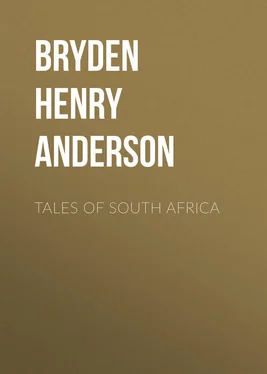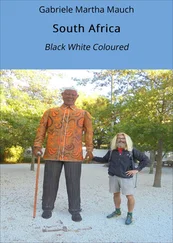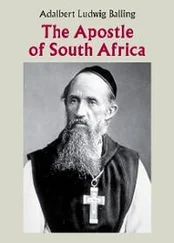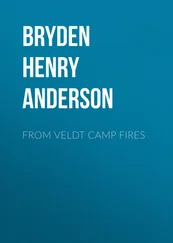Henry Bryden - Tales of South Africa
Здесь есть возможность читать онлайн «Henry Bryden - Tales of South Africa» — ознакомительный отрывок электронной книги совершенно бесплатно, а после прочтения отрывка купить полную версию. В некоторых случаях можно слушать аудио, скачать через торрент в формате fb2 и присутствует краткое содержание. Жанр: foreign_antique, foreign_prose, foreign_language, на английском языке. Описание произведения, (предисловие) а так же отзывы посетителей доступны на портале библиотеки ЛибКат.
- Название:Tales of South Africa
- Автор:
- Жанр:
- Год:неизвестен
- ISBN:нет данных
- Рейтинг книги:4 / 5. Голосов: 1
-
Избранное:Добавить в избранное
- Отзывы:
-
Ваша оценка:
- 80
- 1
- 2
- 3
- 4
- 5
Tales of South Africa: краткое содержание, описание и аннотация
Предлагаем к чтению аннотацию, описание, краткое содержание или предисловие (зависит от того, что написал сам автор книги «Tales of South Africa»). Если вы не нашли необходимую информацию о книге — напишите в комментариях, мы постараемся отыскать её.
Tales of South Africa — читать онлайн ознакомительный отрывок
Ниже представлен текст книги, разбитый по страницам. Система сохранения места последней прочитанной страницы, позволяет с удобством читать онлайн бесплатно книгу «Tales of South Africa», без необходимости каждый раз заново искать на чём Вы остановились. Поставьте закладку, и сможете в любой момент перейти на страницу, на которой закончили чтение.
Интервал:
Закладка:
“Come, Du Plessis,” I said; “let’s carry him up to the camp-fire.”
We picked the poor framework up, and carried it to the fire; it weighed, I suppose, about five stone. Then we got out Du Plessis’ flask, poured out some brandy, mashed up some biscuit and water with it, and administered the mess out of the flask cup. The brandy seemed to revive the poor creature. We gave him a piece of billtong to suck, and at last he spoke.
“I know your face,” he said, looking at me; “don’t you remember Spanish Jack?”
Of course I remembered Spanish Jack, a well-known prospector in the Eastern Transvaal some few years before. Three parts English, one part Spanish, he was one of those restless pioneers who move, Uhlan-like, before the main body of the gold-diggers, always on the hunt for new finds. Looking at the poor death’s-head before me, I could only recognise, in the dark, cavernous eyes and the mass of tangled black hair, the faintest traces of the strong, restless, dare-devil prospector known as Spanish Jack.
“How did you come here?” I queried, and in the same instant, “What’s become of Tobias Steenkamp?” asked Du Plessis in Dutch.
“Give me a drop more brandy,” answered the man in a hoarse whisper, “and I’ll tell you.”
We gave him part of our small remaining stock, with some water, and he went on, speaking, however, with great difficulty.
“I was up in these parts with a donkey and a bit of an outfit four years ago, and I heard from a nigger that a Dutchman had got into this place; and, after a lot of trouble, I found my way in too, from another direction, nor’-east there. I had some grub, and I meant to camp for a week, as alluvial gold was wonderfully plentiful. On the fifth day after I got here, Tobias Steenkamp turned up. It was the second and last trip he made. He was mad to find me here, and told me it was his place, and I was to clear. We quarrelled; he struck me, and in my rage I out with my knife and stabbed him in the chest. He died within an hour. You will find his bones along there under a bit of a cairn near the water. Well, after that I only wanted to get out of the place. I took what gold I had picked up, and started up the mountain again. In my hurry I was careless; I fell, broke my right thigh, and here I have been ever since. My leg healed in a rough sort of way; but there’s a false joint; the bone kept coming away, and I could never walk properly again. I managed to pick up food by snaring fowl and catching fish; but latterly I’ve been too weak to do that. For the last month I’ve been slowly starving. Lizards and roots are what I’ve lived on – that’s God’s truth. My leg’s been getting worse, and I’ve had to crawl, mostly, these last three months. I never expected to reach the water again after to-night, and then I think I should have pinched out. Time enough, too. This place has been worse than hell itself.”
There was a hunted terror in the man’s eye that implied more than his words. I doubted somehow whether I had heard the plain truth. The poor wretch was by this time exhausted, and could say no more. I gave him, at his request, a piece of tobacco; he clapped it into his cheek, and thought he could doze a bit.
I turned to Du Plessis, who had meanwhile, with very grim looks, edged away from the man who, he understood from me (I had translated the gist of the prospector’s story), had slain his cousin. His feeling of vengeance was strong – remember, he was but a primitive Transvaal Boer; but what could even he say, as we looked at this poor travesty of a man, this living skeleton, with its broken, deformed leg, that now slept, huddled up to the fire as closely as the starved Bushman of the Kalahari?
It was now late, and Du Plessis and I, too, lay down and slept; the day had been long and hard, and we were dog-tired. The dawn was cold; and coatless, almost shirtless, as I was, I awoke early, very stiff and sore. Du Plessis had a cord coat on; he yet slept soundly, and even snored. But the figure across the fire seemed very still. I moved quietly to it, touched it gently. It was stiff and cold. Spanish Jack’s troubles and agonies were over; his prospecting was done; and for the blood upon his hands he would never answer upon this earth. Whether he died from the excitement of the meeting; whether that last agonising journey to the water had spent the remaining flicker of strength left within him; whether the story he had told us of Tobias Steenkamp’s death was the true one, I cannot tell.
I roused Du Plessis. Together we went down towards the vlei and found the pile of stones, where, surely enough, the bones of a tall man – undoubtedly Tobias Steenkamp – lay. These we carefully replaced; then, exploring up-hill from where we had come upon the prospector, we found a cave or hollow in which the poor wretch had evidently made a home. Here were Steenkamp’s hat and hunting-knife, among other remnants; and here, too, a pile of nuggets, no doubt collected by Spanish Jack. These nuggets, with a small skin bag partly full of gold-dust, washed, no doubt, from the sands of the vlei – a small tin digger’s pan of Spanish Jack’s showed us that – we took with us. After that, we buried the dead prospector as well as we could, piled big stones above his rude grave, and quitted the place.
We had no wish to tarry there, fair as was the spot. Rather the grim associations of the vlei, the deed of blood enacted there, and the melancholy death we had been witnesses of, impelled us away from it.
After much toil, we safely reached our wagons late that afternoon, worn and famished. We had, somehow, no wish to bequeath to others the secret of the vlei. Having safely descended by the rope, therefore, we set about destroying our traces. Two of our boys were waiting for us at the bottom of the ravine. With these we took a united haul at the rope. The strain was great; the rope parted, as we had expected, far up the cliff, where the hide riems joined the rope itself, and no vestige of our means of descent remained to searchers from below. Next day we trekked from the neighbourhood. The gold we had found realised, some months later, seven hundred pounds, which Du Plessis and I divided between us.
Verloren Vlei, with its smiling face, its dark history, and its wealth of gold – for gold must be there in abundance – lies, I believe, to this day still a secret and an unknown place. No doubt the pelicans and the sand-grouse that first revealed its mysteries to Tobias Steenkamp and ourselves, still visit it in time of drought – towards the driest period of African winter. Some day, I suppose, its recesses will be made accessible and its wealth laid bare. For others that day may come; but for ourselves, neither Koenraad du Plessis nor I have any wish – having prospered in other directions – to tempt fortune there again.
Chapter Two.
A Bushwoman’s Romance
Nakeesa, the Bushwoman, awoke just as dawn crept upon the silent veldt. She belonged to that strange houseless race of wild hunters who roam the waterless, illimitable deserts of the North Kalahari, subsisting sometimes on game, at other times upon roots, reptiles, and berries.
It is needless to say that Nakeesa lay roofless. A little screen of branches, interwoven with a friendly bush, sheltered her and her sleeping husband and her child from the chill south wind that just now began to move through the desert. It was June – midwinter – and the night had been keen even to frostiness – so cold that Nakeesa had lain almost in the fire through the long hours. Her short hartebeest-skin cloak, and the tiny skin petticoat about her loins, only half protected her gaunt, three-quarter starved frame. The baby had nestled in the warmest corner of her cloak, as near to the fire as might be without burning. So close had Nakeesa lain to the pleasant warmth, that the shins of her poor bony legs were burnt raw, as they had been for weeks past. Her man, Sinikwe, lay scorched in exactly the same way.
Читать дальшеИнтервал:
Закладка:
Похожие книги на «Tales of South Africa»
Представляем Вашему вниманию похожие книги на «Tales of South Africa» списком для выбора. Мы отобрали схожую по названию и смыслу литературу в надежде предоставить читателям больше вариантов отыскать новые, интересные, ещё непрочитанные произведения.
Обсуждение, отзывы о книге «Tales of South Africa» и просто собственные мнения читателей. Оставьте ваши комментарии, напишите, что Вы думаете о произведении, его смысле или главных героях. Укажите что конкретно понравилось, а что нет, и почему Вы так считаете.












